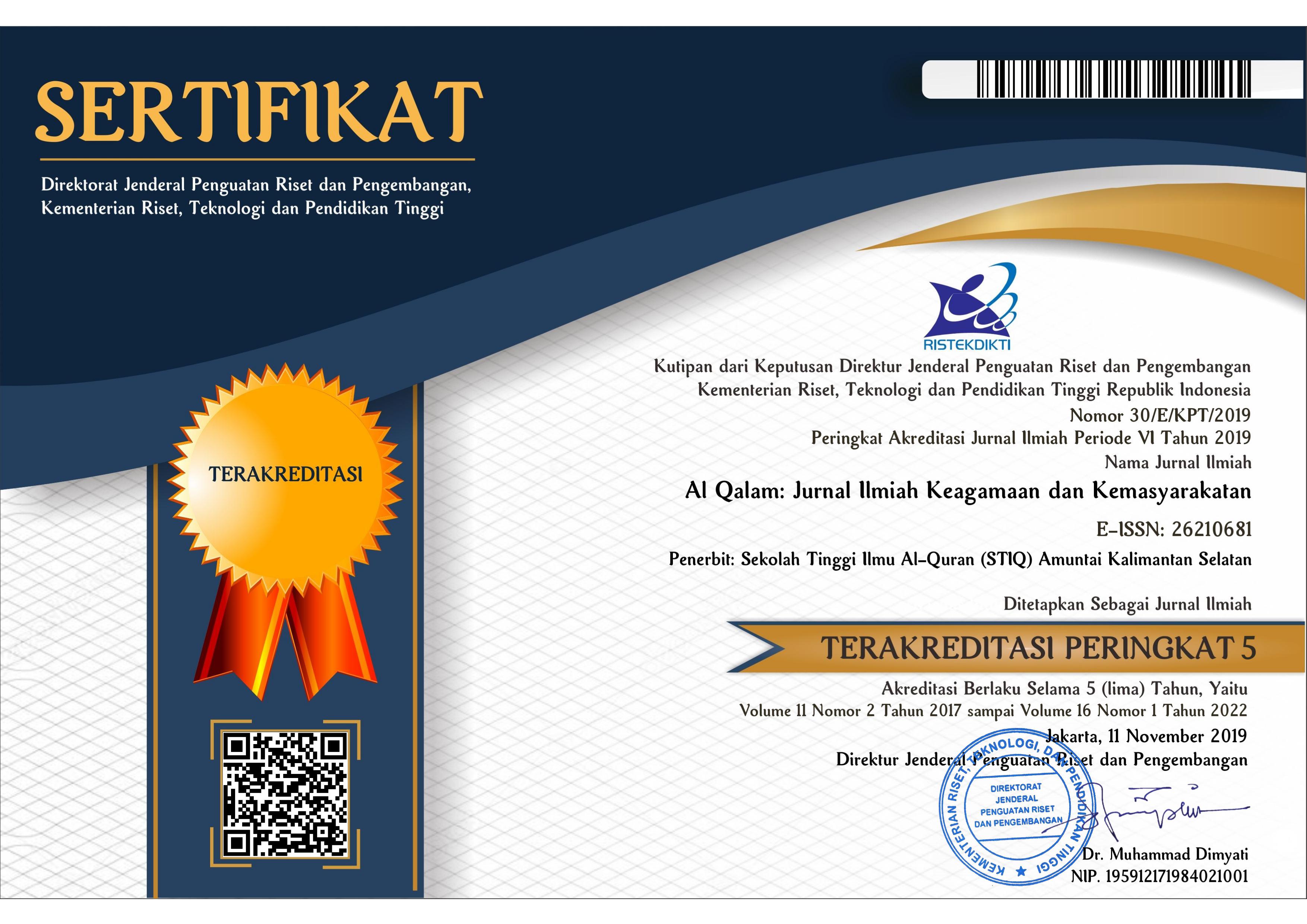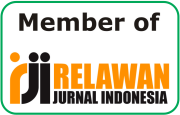Implementation of Vygotsky’s Constructivism Learning Theory through Project-Based Learning (PjBL) in Elementary Science Education
Abstract
The study aims to describe the implementation of planning, implementation and evaluation of learning of Vygotsky constructivism through project-based learning on IPA exploration. This research uses a qualitative approach to the type of case study research. A case study is an enquiry to investigate phenomena occurring on the ground. This research was conducted at SDN Mojolangu 3 Kota Malang and the research subjects were 3 class teachers, students of 4.5 and 6. Data was collected through interview techniques, observations, and documentation. Data analysis is carried out in three stages: data reduction, data presentation, and conclusion delivery. The initial phase analysis is done by designing learning to determine the theme of the project, determine the implementation, and carry out evaluations to find out the project's success. Research results show that the application of Vygotsky learning through project-based learning to IPa learning can create new experiences for students and attract attention. Vygotsky's approach to constructivism emphasises student-centred learning in the acquisition of knowledge and the process of interaction with the social environment. Active participation of students in learning as the application of constructivist theory can be implemented in project-based learning, where learning project-based learning is one of the learning models that uses projects in problem-solving and student involvement independently through peer mediation in completing a project that has been designed by the teacher.
Keywords
Full Text:
PDFReferences
Abderrahim, Lizzie, and Mar Gutiérrez-Colón Plana. “A Theoretical Journey from Social Constructivism to Digital Storytelling.” The EuroCALL Review 29, no. 1 (2021): 38. https://doi.org/10.4995/eurocall.2021.12853.
Abdiyah, Lathifah, and Subiyantoro Subiyantoro. “Penerapan Teori Konstruktivistik Dalam Pembelajaran Tematik Di Sekolah Dasar.” ELSE (Elementary School Education Journal) : Jurnal Pendidikan Dan Pembelajaran Sekolah Dasar 5, no. 2 (2021): 127. https://doi.org/10.30651/else.v5i2.6951.
Abdurrahmansyah. “Kontribusi Pendekatan Pembelajaran Konstruktivisme Dalam Meningkatkan Kualitas Pembelajaran Pai Di Sekolah” XIX, no. 01 (2014): 111–22.
Adi Nugroho, Setyo. “Indonesian Journal of Curriculum and Educational Technology Studies Peningkatan Keaktifan Dan Hasil Belajar Siswa Melalui Penerapan Teori Konstruktivisme Berbasis Media Wondershare Quizcreator Article History.” Ijcets 4, no. 2 (2016): 73–78.
Agustini, Rudiana. “Journal of Technology and Science Education STUDENTS THROUGH SELF-PROJECT BASED LEARNING ( SjBL ) IN” 11, no. January 2020 (2021): 371–87.
Amna Saleem, Huma Kausar, and Farah Deeba. “Social Constructivism: A New Paradigm in Teaching and Learning Environment.” Perennial Journal of History 2, no. 2 (2021): 403–21. https://doi.org/10.52700/pjh.v2i2.86.
Ardila, Alfredo. “L.S. Vygotsky in the 21st Century.” Psychology in Russia: State of the Art 9, no. 4 (2016): 4–15. https://doi.org/10.11621/pir.2016.0401.
Artawan, Gede. “Pengaruh Pendekatan Konstruktivisme Terhadap Aktivitas Dan Hasil Belajar Siswa Dalam Pembelajaran Teks Biografi.” Journal of Education Research and Evaluation 1, no. 4 (2017): 217. https://doi.org/10.23887/jere.v1i4.12151.
As Janah Verrawati. “Implikasi Teori Konstruktivisme Vygotsky dalam Pelaksanaan Model Pembelajaran Tematik Integratif di SD,” no. 17712251063 (n.d.): 1–15.
Azizah, Nur, Siska Desy Fatmaryanti, and Nur Ngazizah. “Penerapan Model Pembelajaran Konstruktivisme Berbasis Problem Based Learning ( PBL ) Untuk Meningkatkan Kemampuan Berfikir Kritis Pada Siswa SMA Negeri 1 Kutowinangun Kelas X Tahun Pelajaran 2013 / 2014.” Radiasi 5, no. 2 (2014): 24–28.
B R, Aravind, and Bhuvaneswari G. “Utilizing Blogs on ESL Learners’ Vocabulary Learning through Social Constructivist Theory: A Descriptive Study.” MethodsX 10, no. December 2022 (2023): 101970. https://doi.org/10.1016/j.mex.2022.101970.
Balemen, N, and M Özer Keskin. “The Effectiveness of Project-Based Learning on Science Education: A Meta-Analysis Search.” International Online Journal of Education and Teaching (IOJET) 5, no. 4 (2018): 849–65.
Cahyani, I. “Peningkatan Keterampilan Menulis Dengan Model PAKEM Melalui Teknik Menjadi Wartawan Junior Di Sekolah Dasar.” Sosiohumanika 8, no. 1 (2015): 39–54.
Dagar, Vishal, and Aarti Yadav. “Constructivism: A Paradigm for Teaching and Learning.” Arts and Social Sciences Journal 7, no. 4 (2016): 1–4.
Darna, and Isthifa Kemal. “Penerapan Pendekatan Konstruktivisme Dalam Meningkatkan Keterampilan Menulis Surat Pribadi Pada Siswa Kelas Iv Sd Negeri 11 Tanah Jambo Aye Kabupaten Aceh Utara.” Jurnal Tunas Bangsa 2, no. 2 (2015): 41–66.
Ergül, N. Remziye, and Elif Keskin Kargın. “The Effect of Project Based Learning on Students’ Science Success.” Procedia - Social and Behavioral Sciences 136 (2014): 537–41. https://doi.org/10.1016/j.sbspro.2014.05.371.
Fahrezi, Iszur, Mohammad Taufiq, Akhwani Akhwani, and Nafia’ah Nafia’ah. “Meta-Analisis Pengaruh Model Pembelajaran Project Based Learning Terhadap Hasil Belajar Siswa Pada Mata Pelajaran IPA Sekolah Dasar.” Jurnal Ilmiah Pendidikan Profesi Guru 3, no. 3 (2020): 408. https://doi.org/10.23887/jippg.v3i3.28081.
Fitrah, Muh, and others. Metodologi Penelitian: Penelitian Kualitatif, Tindakan Kelas & Studi Kasus. CV Jejak (Jejak Publisher), 2018.
Fuada, B. I., Sarwi, and S . Linuwih. “Penerapan Model Pembelajaran Problem Based Learning Berbasis Konstruktivisme Untuk Meningkatkan Pemahaman Konsep Siswa Kelas VII.” Unnes Physics Education Journal 3, no. 1 (2014): 11–15.
Gupta, Poonam. “Constructivism: A New Paradigm in Teaching and Learning.” International Journal of Academic Research and Development 2, no. 4 (2017): 183–96.
Gurses, Ahmet, Cetin Dogar, and Kubra Gunes. “A New Approach for Learning: Interactive Direct Teaching Based Constructivist Learning (IDTBCL).” Procedia - Social and Behavioral Sciences 197, no. February (2015): 2384–89. https://doi.org/10.1016/j.sbspro.2015.07.296.
Handayani, Lilik. “Peningkatan Motivasi Belajar IPA Melalui Model Pembelajaran Project Based Learning Pada Masa Pandemi Covid-19 Bagi Siswa SMP Negeri 4 Gunungsari.” Jurnal Paedagogy 7, no. 3 (2020): 168. https://doi.org/10.33394/jp.v7i3.2726.
Hawwin Muzakki. “Teori Belajar Konstruktivisme Ki Hajar Dewantara Serta Relevansinya Dalam Kurikulum 2013.” Southeast Asian Journal of Islamic Education Management 2, no. 2 (2021): 261–82. https://doi.org/10.21154/sajiem.v2i2.64.
Ilham, M, and L Arba’iyah. “Implementasi Teori Belajar Perspektif Psikologi Konstruktivisme Dalam Pendidikan Anak Sekolah Dasar.” Jurnal Multilingual 3, no. 3 (2023): 1412–4823.
Irawati, Sri. “Penerapan Model Problem Based Learning Untuk Meningkatkan Motivasi Dan Prestasi Belajar Sosiologi.” Cakrawala Pedagogik 4, no. 1 (2020): 35–43. https://doi.org/10.51499/cp.v4i1.131.
Khairunnisa Ulfadhilah. “Konstruktivisme dan Implementasinya dalam Pembelajaran Anak Usia Dini.” … EduKids: Jurnal Pendidikan Anak Usia Dini 3, no. 1 (2021): 1–13.
Kouicem, Khadidja. “Psychological & Educational Studies Constructivist Theories of Piaget and Vygotsky: Implications for Pedagogical Practices.” Psychological & Educational Studies 13, no. 3 (2020): 359–72.
Lukitasari, Marheny, Rusdi Hasan, Akhmad Sukri, and Jeffry Handhika. “Developing Student’s Metacognitive Ability in Science through Project-Based Learning with e-Portfolio.” International Journal of Evaluation and Research in Education 10, no. 3 (2021): 948–55. https://doi.org/10.11591/IJERE.V10I3.21370.
Mardiana, Mardiana. “Penerapan Pembelajaran Ipa Berbasis Konstruktivisme Dalam Meningkatkan Sikap Ilmiah Pada Siswa Madrasah Ibtidayah.” Al-Madrasah: Jurnal Pendidikan Madrasah Ibtidaiyah 3, no. 1 (2018): 61–80. https://doi.org/10.35931/am.v0i0.69.
Marnewick, Carl. “Student Experiences of Project-Based Learning in Agile Project Management Education.” Project Leadership and Society 4, no. August (2023): 100096. https://doi.org/10.1016/j.plas.2023.100096.
Mattar, João. “Constructivism and Connectivism in Education Technology: Active, Situated, Authentic, Experiential, and Anchored Learning.” RIED. Revista Iberoamericana de Educación a Distancia 21, no. 2 (2018): 201. https://doi.org/10.5944/ried.21.2.20055.
Mishra, Nirmal Raj. “Constructivist Approach to Learning: An Analysis of Pedagogical Models of Social Constructivist Learning Theory.” Journal of Research and Development 6, no. 01 (2023): 22–29. https://doi.org/10.3126/jrdn.v6i01.55227.
Msonde, Sydney Enock. “Revisiting the Idea of Learner-Centered Pedagogy: The Theoretical Perspective.” Journal of Education 203, no. 2 (2023): 468–78.
Mulyadi, Mulyadi. “Teori Belajar Konstruktivisme Dengan Model Pembelajaran (Inquiry).” Al Yasini : Jurnal Keislaman, Sosial, Hukum Dan Pendidikan 7, no. 2 (2022): 174. https://doi.org/10.55102/alyasini.v7i2.4482.
Mustafa, Pinton Setya, and Roesdiyanto Roesdiyanto. “Penerapan Teori Belajar Konstruktivisme Melalui Model PAKEM Dalam Permainan Bolavoli Pada Sekolah Menengah Pertama.” Jendela Olahraga 6, no. 1 (2021): 50–56. https://doi.org/10.26877/jo.v6i1.6255.
Naufal, Hanif. “Model Pembelajaran Konstruktivisme Pada Matematika Untuk Meningkatkan Kemampuan Kognitif Siswa Di Era Merdeka Belajar.” Seminar Nasional Pendidikan Matematika 2, no. 1 (2021): 143–52.
Nurhayati, Asep Sukenda Egok, and Aswarliansyah. “Penerapan Model Pembelajaran Kooperatif Tipe TGT Pada Pembelajaran IPA Sekolah Dasar.” Jurnal Basicedu 6, no. 5 (2022): 3.
Nurwidiyanti, Ari, and Prima Mutia Sari. “Pengembangan Media Pembelajaran Flipbook Berbasis Literasi Sains Pada Pembelajaran IPA Sekolah Dasar.” Jurnal Basicedu 6, no. 4 (2022): 6949–59. https://doi.org/10.31004/basicedu.v6i4.3421.
O’Connor, Kate. “Constructivism, Curriculum and the Knowledge Question: Tensions and Challenges for Higher Education.” Studies in Higher Education 47, no. 2 (2022): 412–22.
Plummer, Laura, Lesley Smith, Elizabeth Cornforth, and Shweta Gore. “Teaching Psychomotor Skills in a Virtual Environment: An Educational Case Study.” Education Sciences 11, no. 9 (2021). https://doi.org/10.3390/educsci11090537.
Rokhmah, Dewi. “Ilmu Dalam Tinjauan Filsafat: Ontologi, Epistemologi, Dan Aksiologi.” CENDEKIA: Jurnal Studi Keislaman 7, no. 2 SE- (2021): 172–86.
Safaruddin, Safaruddin, Nurlaiha Ibrahim, Juhaeni Juhaeni, Harmilawati Harmilawati, and Laeli Qadrianti. “The Effect of Project-Based Learning Assisted by Electronic Media on Learning Motivation and Science Process Skills.” Journal of Innovation in Educational and Cultural Research 1, no. 1 (2020): 22–29. https://doi.org/10.46843/jiecr.v1i1.5.
Sari, Rona Taula, Siska Angreni, and Retno Aulia Fortuna. “Pengembangan Modul Pembelajaran Ipa Berbasis Pendekatan Konstruktivisme Untuk Kelas V Sd.” Bio-Pedagogi 8, no. 2 (2019): 89. https://doi.org/10.20961/bio-pedagogi.v8i2.34725.
Sawyer, R Keith. “Teaching Creativity in Art and Design Studio Classes: A Systematic Literature Review.” Educational Research Review 22 (2017): 99–113.
Sayfullooh, Istiqomah As, Desyandri, Irdamurni, and Nafsi Latifah. “Relevansi Teori Konstruktivistik Vygotsky Dengan Kurikulum Merdeka : Studi Kepustakaan.” Jurnal Tinta 5, no. 2 (2023): 73–82.
Sharma, Hemant, and Poonam Gupta. “Constructivist Approach for Teaching English: Making Sense of Paradigm Shift from the Traditional Approach.” International Journal of Science and Research (IJSR) 5, no. 10 (2016): 778–92.
Soenarno, Sri Murni, and Astari Miranti. “Conservation Education for Elementary School Students.” Edukasi 15, no. 1 (2021): 74–82. https://doi.org/10.15294/edukasi.v15i1.30196.
Sugiyono. Metode Penelitian Kuantitatif, Kualitatif, Dan R&D. Bandung: Alfabeta, 2015.
Suoth, Like, Elsye Jesti Mutji, and Robinsor Balamu. “Penerapan Pendekatan Konstruktivisme Vygotsky Terhadap Pembelajaran Bahasa Indonesia.” Journal for Lesson and Learning Studies 5, no. 1 (2022): 48–53. https://doi.org/10.23887/jlls.v5i1.40510.
Suprianto, Agus Hariyadi. “Konstruktivisme Dan Pembelajaran IPA.” Jurnal Pendidikan Modern 4, no. 2 (2019): 46–52. https://doi.org/10.37471/jpm.v4i2.20.
Vitriani, Desti, Ana Fitrotun Nisa, Siwi Nurhayati, Dian Aprelia Rukmi, and Armi Yustina. “Implementasi Pendekatan Konstruktivisme Pada Pembelajaran IPA Untuk Meningkatkan Hasil Belajar IPA Siswa Kelas V SD.” In Prosiding Seminar Nasional Pendidikan Dasar, 1:88–101, 2023.
Wahyu, Yuliana, Ambros Leonangung Edu, and Mikael Nardi. “Problematika Pemanfaatan Media Pembelajaran IPA Di Sekolah Dasar.” Jurnal Penelitian Pendidikan IPA 6, no. 1 (2020): 107. https://doi.org/10.29303/jppipa.v6i1.344.
DOI: http://dx.doi.org/10.35931/aq.v18i4.3620
Refbacks
- There are currently no refbacks.
Copyright (c) 2024 Trio Erawati Siregar, Nihayatul Luali, Risca Canda Vinalistyosari, Fattah Hanurawan, Ade Eka Anggraini

This work is licensed under a Creative Commons Attribution 4.0 International License.
Al Qalam: Jurnal Ilmiah Keagamaan dan Kemasyarakatan
index by:
Publish by:
Sekolah Tinggi Ilmu Al-Qur'an Amuntai
Contact us:
Address: Jl. Rakha Pakapuran, Amuntai Utara
Kabupaten : Hulu Sungai Utara
Kode Pos : 71471
Provinsi : Kalimantan Selatan
Telephone : 085251613000
Email: hafizhihusinsungkar@gmail.com

This work is licensed under a Creative Commons Attribution 4.0 International License


